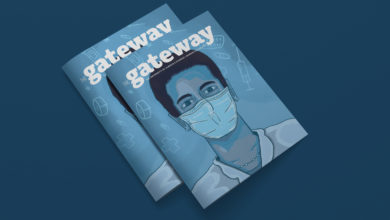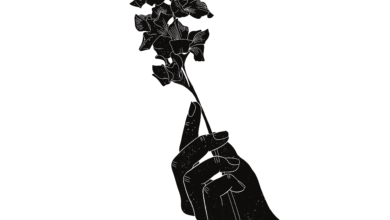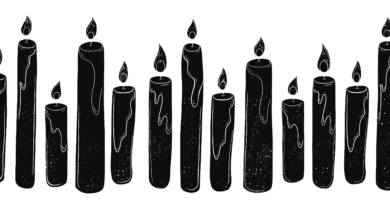 Helen Zhang
Helen Zhang We all have fears. When I was younger, I was afraid of staying home by myself after watching Home Alone several times. No one tried to break into my house and I never resorted to setting anyone’s head on fire to protect myself. However, that fear stayed with me until the beginning of junior high school.
No matter how unrealistic some of our fears may be, there will always be more tangible ones that come with our life decisions. Going into a high-stakes, stressful career where a patient’s well-being rests in your hands and one mistake could have drastic consequences is a heavy burden to carry. In an effort to learn more about the anxiety and worry associated with a medical career path, I reached out to my two friends, Ryan Key and Johnny Nguyen, who are both fourth-year nursing students.
Considering the stressful tasks that nurses have, such as caring for patients and following the exact instructions of doctors, one of Nguyen’s greatest worries is falling short of expectations. He is afraid of disappointing his family and friends after they put their faith and trust in him.
“Making errors or letting people down who invested a whole lot into you is [my biggest fear],” Nguyen said. “Even just the job that I’m working at as an undergrad nurse right now, you see how much everyone is willing to let you learn. Am I doing a good enough job for them to justify how much [trust] they put into me?”
When you’re a doe-eyed high school graduate about to enter your first year of university, getting caught up in the hustle and bustle of Week of Welcome can make it hard to contemplate how a future job might cause self-doubt or anxiety. In his first year, Nguyen did not fully understand the implications of being a nurse as it seemed so far off in the future. Now that he is going into the final year of his degree, he often feels overwhelmed working with patients.
“The well-being of others isn’t intrinsically tied to my self-worth.”
A nurse’s job is no small task. They are the front line for any patient who walks in and are necessary to translate the medical jargon of doctors into English. If a patient is sobbing hysterically, nurses have to remain calm despite the stress they face. Although it sounds dramatic, nurses hold patients’ lives in their hands.
“Even though [saving people’s lives] is not really part of my day to day, it is still something that happens and it is something you have to come to terms with,” Key said.
On a preceptorship program, Nguyen himself is currently experiencing a microcosm of how a nurse’s decisions can affect a patient’s life.
“I’m working at a rural hospital right now and not everybody wears a patient identifying wristband,” Nguyen said. “It’s kind of always scary, especially the first few weeks I was here. If I’m giving meds, am I giving it to the right person?”
Thankfully, despite how daunting these fears can seem, Nguyen and Key find ways to cope. Key believes that taking a step back and looking at the situation with an outside perspective can help.
“If I’m doing my best to help somebody and it doesn’t work out, it doesn’t really mean that I’m any less of a nurse for it,” Key said. “It is important to recognize that the well-being of others isn’t intrinsically tied to my self-worth.”
For future nursing students and those who wish to go into healthcare, Nguyen believes that it is important to accept the inevitability of making mistakes and to not think too highly of oneself. Key doesn’t like the idea of telling someone what to do. Rather, he thinks that guiding someone while they act for themselves can be more empowering.
“Advice, in and of itself, often fails to consider the position of who’s on the receiving end and acts as a bandage for a wound that requires more attention,” Key said. “When the time comes, [nurses] are supposed to walk behind people rather than beside them when they make their own decisions.”




